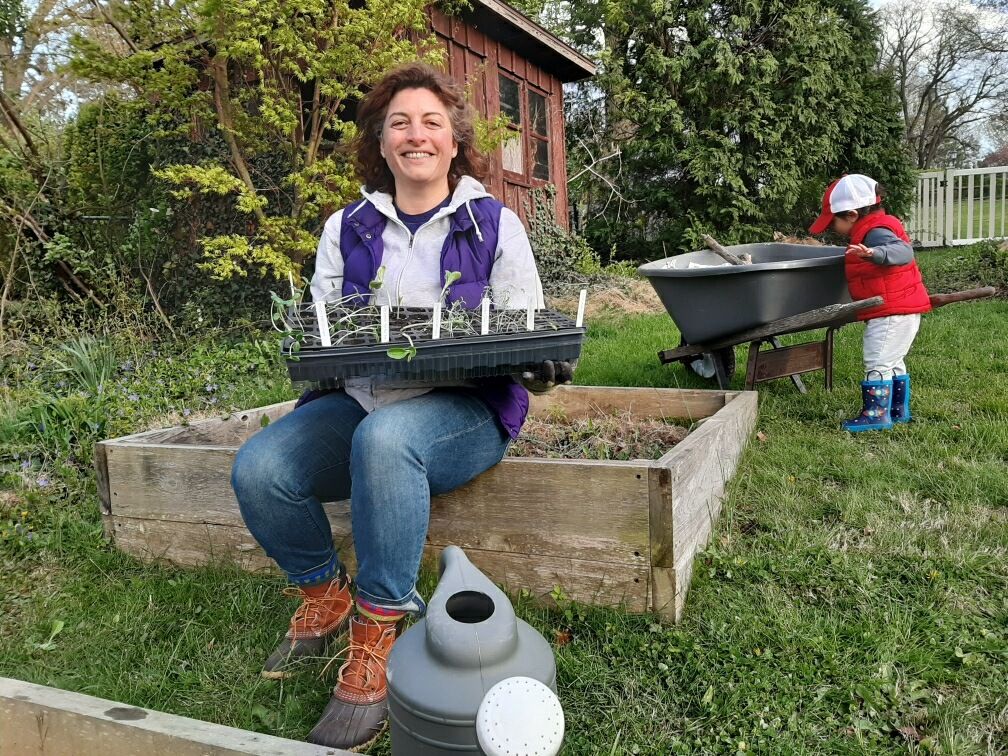City of Reading Councilwoman Lucine Sihelnik has announce “Cultivating Community,” a new collaborative initiative focused on historic victory gardening and food security in the City of Reading. Organized by Councilwoman Sihelnik, the “Cultivating Community” Victory Garden Task Force is a partnership of local organizations, businesses, and the City of Reading, working to cultivate the community food system during the COVID-19 outbreak.
The first phase of the “Cultivating Community” project will launch on the Monday following Mother’s Day, May 11, 2020, just in time for Berks County’s “final frost” date when many gardeners and farmers begin their outdoor planting. On this date, the task force will begin to distribute container garden kits to residents in District 1.
On Friday, April 17, 2020, the Pennsylvania Department of Agriculture issued state-wide guidance for community gardens to continue amid COVID-19, highlighting the importance of gardening for local food security during the pandemic. Working swiftly in response to Secretary Redding’s call to action, the task force came together under Sihelnik’s direction to address concerns about community food security in the city of Reading.
Working together on the task force are: the City of Reading, DS Smith, the Food Trust of Philadelphia, the Berks History Center, Reading’s Environmental Advisory Council, Berks Nature, the Berks Conservation District, Penn State Cooperative Extension and the Berks County Master Gardeners.
The “Cultivating Community” Victory Garden Task Force collectively seeks to empower people to grow their own food by providing education and resources for home & community gardening in the city of Reading, starting with District 1. Each partner brings unique assets to the team and several organizations have launched complementary initiatives.
The initial launch will result in Victory Gardens throughout the City of Reading and is intended to grow. Victory Gardens will be sprouting up in District 1, eight Berks Nature City Urban Gardens, the Berks History Center, and the Albright College Community Garden.
Additionally the group aims to promote community health and to increase environmental sustainability in Berks County. The task force hopes to create a model that can be replicated within other districts and communities in Berks while engaging and supporting local businesses during the COVID-19 crisis.
Soil, compost, and starter plants will be purchased to help stimulate local nurseries and farms with the help of the Food Trust of Philadelphia. Penn State Master Gardeners will help assemble and prepare the containers, which have been custom designed and donated to the project by District 1 cardboard manufacturer, DS Smith.
The Victory Garden containers will be delivered with growing instructions and historical information in English and Spanish provided by the Berks History Center. Additional resources will be available digitally such as online Victory Garden webinars hosted by the Penn State Berks Extension.
All participants will be encouraged to connect with other local victory gardeners to share ideas and resources by joining the Berks Victory Gardeners Facebook group, as well as follow the Taskforce campaign through the Councilwoman’s social media platforms.
Get Involved
District 1 residents who are interested in “Cultivating Community” and want to grow their own victory garden can reserve a free Victory Container Garden Kit using the City of Reading’s iRequest App from the Citizens Service Center. Supplies are limited and will be reserved on a first come, first served basis. More information about the reservation process will be announced at a later date. To find it on the iRequest, residents can type “Victory Garden” into the search bar.
“Although we have come together in response to concerns around food access in our community during this time of crisis,” says Council VP, Lucine Sihelnik,
“we must keep in mind our long term goals for food security in the city of Reading. As we work to empower our community to feed themselves during COVID-19, we will continue to develop new ways to connect with one another after the physical distancing is over. We hope that families will embrace one another again, sharing what they have grown, cooked and canned. We hope that by growing food at home we will remember that, as Mayor Moran says, “we are each other’s neighbors.””


